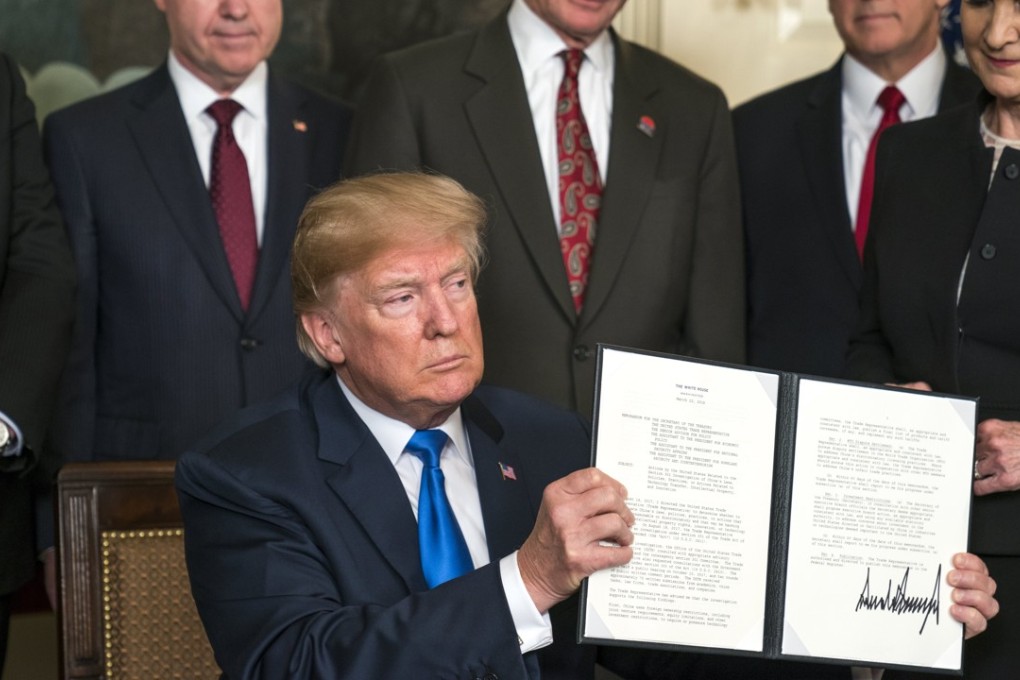Asian Angle | Beijing must change its ways or US trade war looks inevitable
If China refuses to alter some of its practices, such as its pursuit of foreign intellectual property, the scenario is likely to play out in the worst way possible and cripple global markets

As China and the United States appear to be on a collision course towards a trade war, Beijing’s dogged pursuit of intellectual property may come back to bite it.
Last week, the Office of the US Trade Representative (USTR) announced US$60 billion of new tariffs on Chinese imports. By targeting China’s technology sector and areas such as AI, telecoms and autonomous vehicles – priority sectors in China’s “Made in China 2025” master plan – Washington is hitting Beijing where it hurts.
Someone tell Trump the trade war is over. China won
The White House has labelled Beijing an “economic aggressor,” a non-market economy, and a duplicitous actor that uses coercion to obtain Western technology and IP. Beijing’s long-running subsidies to state-owned enterprises and its systematic protection of Chinese firms were also cited.
But, beyond Washington, a much broader backlash against China Inc’s practices has been brewing among the G20 countries. This time, it’s less likely that Beijing will be able to drive a wedge between the US and its European allies – despite the fact that Trump is a hugely unpopular US president on the world stage.
Two key questions have emerged. First, is the Communist Party finally ready to negotiate with Washington and change its fundamental trade practices? Second, can a marginalised WTO play a positive role in sorting out China’s trade behaviour or does this ultimately come down to bilateral deal-making?
The pursuit of foreign IP has been at the core of China’s strategy to become a global superpower.
For decades, Chinese law has required foreign companies to form joint ventures with local Chinese firms, and, in the process, to transfer vital technology and know-how to their Chinese business partners.
